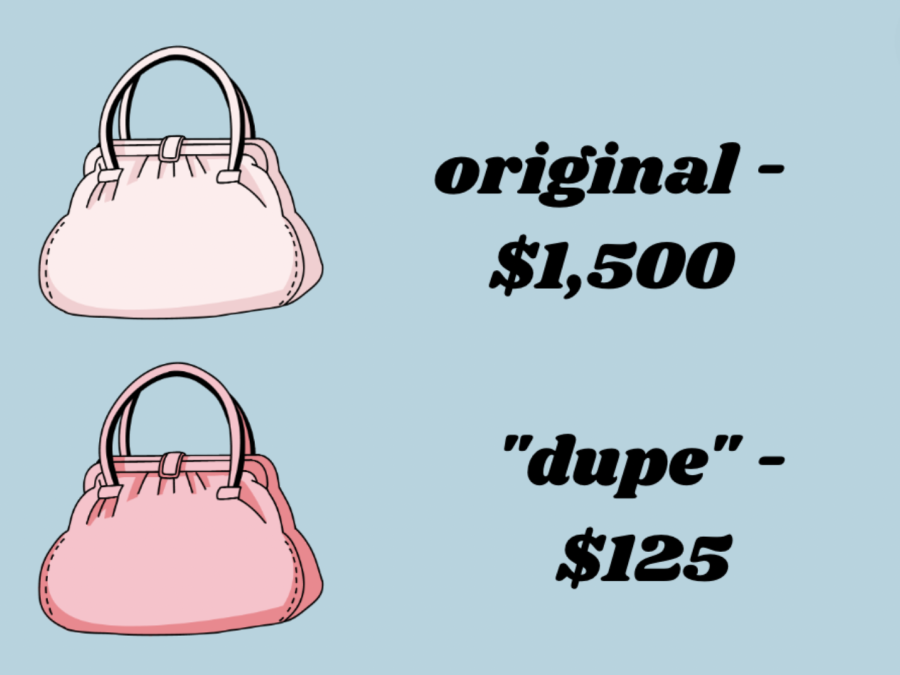Clothing “Dupes” Wreak Havoc in Fashion Industry
Fashion “dupes” are harmful to both the environment and small businesses.
Five years ago, buying knock-off products was something to be ashamed of. That same behavior has now become almost second nature to shoppers everywhere.
Companies like Amazon can afford to produce cheaper quality products and market them as duplicates, or “dupes” as popularized by popular social media app TikTok. Potential buyers find these replicate items through apps like Pinterest, TikTok, YouTube, and Instagram. These clothes, skincare, and more spread like wildfire and drive home the ever-growing concept of fast fashion.
There is less of a stigma around buying the cheapest available product to fit your needs. Many individuals struggle to find things that are fashionable but cheap; nevertheless, consumers because of this desire ignore environmental damages.
“If you really want something and it’s way out of your budget, a dupe is always an option. But it does take away from the original creator’s work,” senior Honesty Jean said.
A problem arises when fast fashion brands repeatedly copy artisans’ work. Elexiay, a small, black-owned business, had their sustainable crochet sweaters copied for a significantly lower price by Shein. This has become common practice for fast fashion manufacturers.
While wearing shoes that resemble another pair is not a bad thing, it encourages a lack of individuality and quick trend cycles that encourage sweatshop mass-production and poor-quality items.
To promote sustainable purchases in Southern Lehigh, the Ecology Club hosted their annual spring clothing swap on April 11th. In collaboration with the fashion club, a prom attire swap is also being organized. These types of events help encourage reuse and more mindful purchasing habits.
Senior Ecology Club president Avery Tatasciore elaborated on the drive’s mission.
“We have the clothing swap to bring a second life to clothes,” Tatsciore said. “Mindful buying doesn’t just benefit the environment by limiting waste, but it benefits your closet by adding unique one-of-a-kind pieces. One man’s trash is another man’s treasure.”
Because social media promotes new items every week, consumers feel pressured to keep up with the latest trend. Clothes and accessories bought only a month before appear tacky and overdone by the sheer exposure and constant updating of trends.
The solution isn’t simple, and fast fashion will likely exist for years to come. Buyers have to make conscious choices and curate a wardrobe of pieces they can continue to use for years. Sustainability is the goal, and has to be at the forefront of shoppers’ minds when they “add items to cart.”

Senior Zoey Robinson is a first-year staff reporter for the Spotlight. In addition to writing for the paper, she is also very active in theater. The shows...

After spending four years writing for the Spotlight, with three of those years as Opinion editor and one as Features editor, senior Morgan Downing will...


